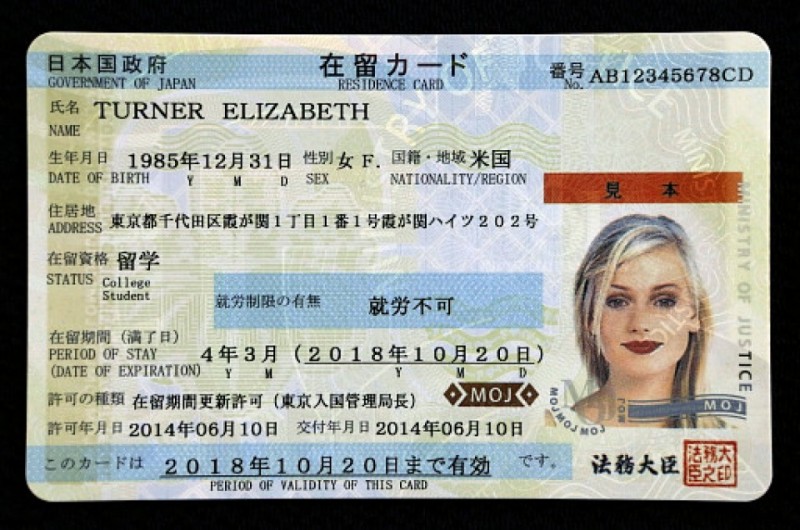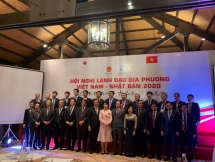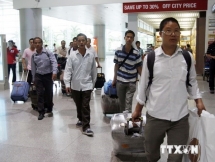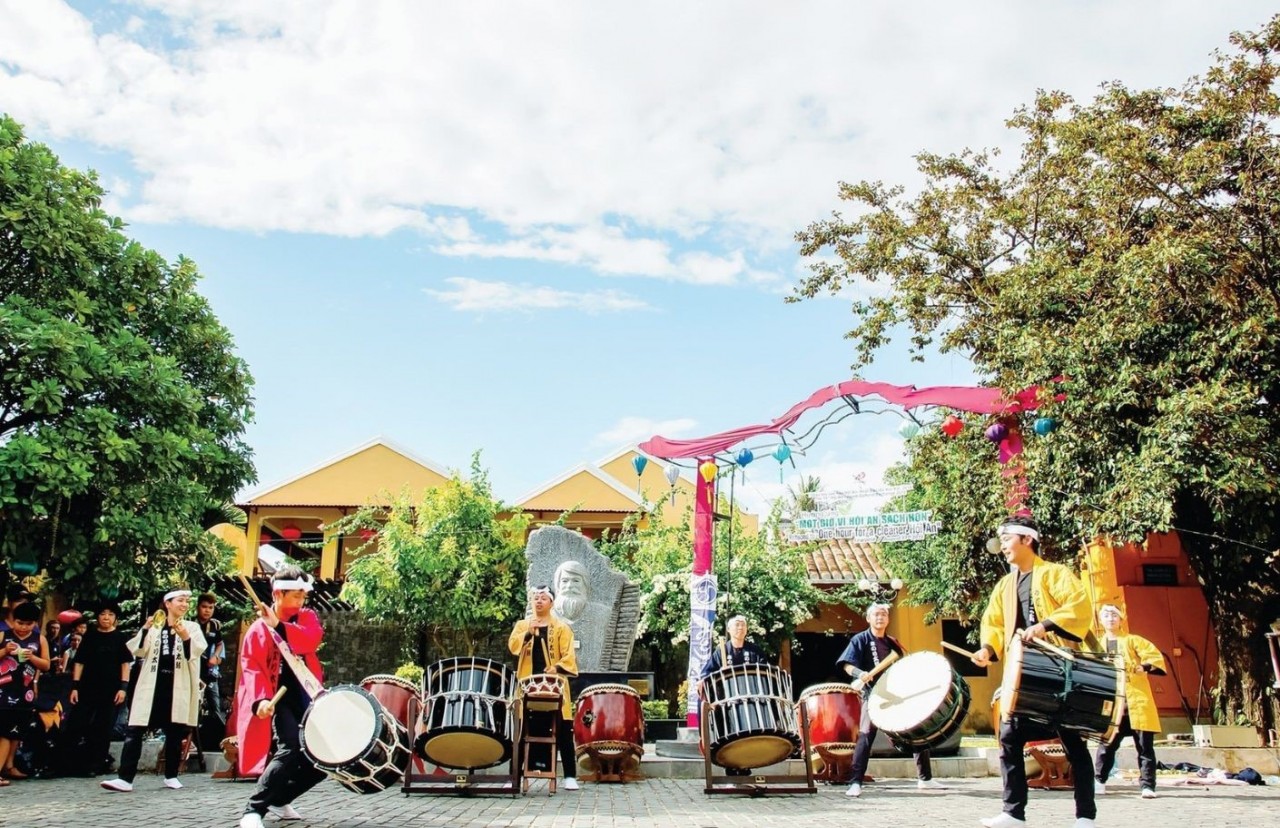Japan strikes to crack down on visa laws violations by app detecting fake residence cards
| Vietnamese, Japanese local leaders meet in Da Nang | |
| Over 130,000 labourers head overseas for work in 11 months | |
| Daily life support portal, guidebook for foreign residents in Japan |
 |
| This photo shows a sample foreign resident's card. (Photo: Kyodo) |
In an attempt to crack down on violations of visa laws, the Japanese government will develop a smartphone app to easily identify forged residence cards for foreigners.
Residence cards list information of holders including name, birthdate, nationality, residential status and period of stay.
Forged residence cards are often used to get jobs other than those permitted by the type of visa held or to remain in the country beyond the permitted period. In some cases, they are used to sign housing loan contracts.
The app, aimed at potential employers of foreign workers, will read data stored in the IC chips embedded in the cards and confirm whether the data matches information listed on the cards such as name and residential status.
While the hologram on the surface of the cards has been counterfeited, so far there has been no case of the IC chips being faked, the Japan’s Immigration Services Agency said.
The agency has already made public the specifications for devices to read data on the cards' IC chips, but few companies have introduced scanning devices due to the difficulty of developing them on their own.
The agency hopes that medium and small-sized companies will utilize the new app when they hire foreign workers.
The envisaged app would allow a residence card's IC chip to be read just by holding a smartphone over the card. The government earmarked some 130 million yen (USD 1.2 million) in its extra budget for the current fiscal year for development costs.
The government aims to introduce the app by the end of 2020, the officials said.
More foreigners are expected to live in Japan under a new visa system launched in April last year to cope with a labor shortage.
The government expects up to 345,150 foreigners to acquire a newly created resident status that grants the right to work in 14 sectors such as construction, farming and nursing care for up to a total of five years.
The number of foreign residents has been increasing every year, reaching some 2.83 million at the end of June last year, up from about 2.03 million at the end of 2012, according to the Immigration Services Agency.
The number of arrests resulting from holding or using forged residence cards also has been rising, reaching 620 in 2018, up about 1.6-fold from the previous year, according to local police.
| At the moment, there are over 350,000 Vietnamese living, studying, and working in Japan, including a number of intellectuals from scientists to researchers at universities, research institutes, experts at leading companies in Japan as well as entrepreneurs from many fields. Compared to the 1990s when the Vietnamese intellectual community in Japan had only about 100 people, it can be seen that the intellectual community in recent years has made great progress in both quality and quantity. |
Recommended
 World
World
Pakistan NCRC report explores emerging child rights issues
 World
World
"India has right to defend herself against terror," says German Foreign Minister, endorses Op Sindoor
 World
World
‘We stand with India’: Japan, UAE back New Delhi over its global outreach against terror
 World
World
'Action Was Entirely Justifiable': Former US NSA John Bolton Backs India's Right After Pahalgam Attack
 World
World
US, China Conclude Trade Talks with Positive Outcome
 World
World
Nifty, Sensex jumped more than 2% in opening as India-Pakistan tensions ease
 World
World
Easing of US-China Tariffs: Markets React Positively, Experts Remain Cautious
 World
World





